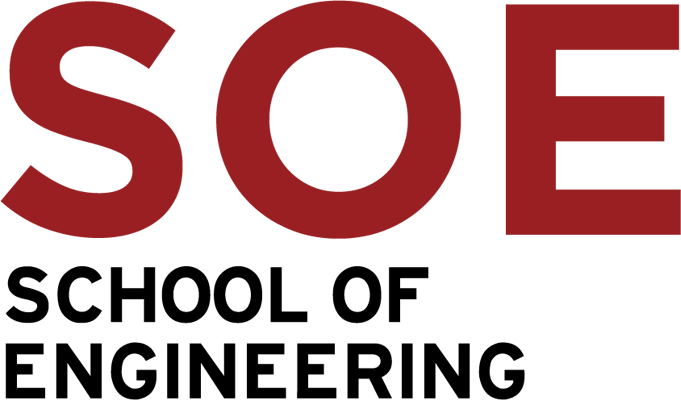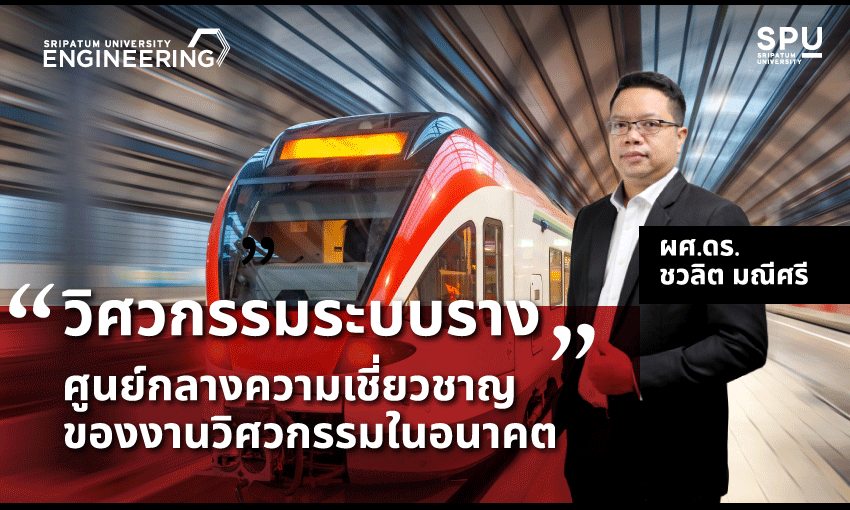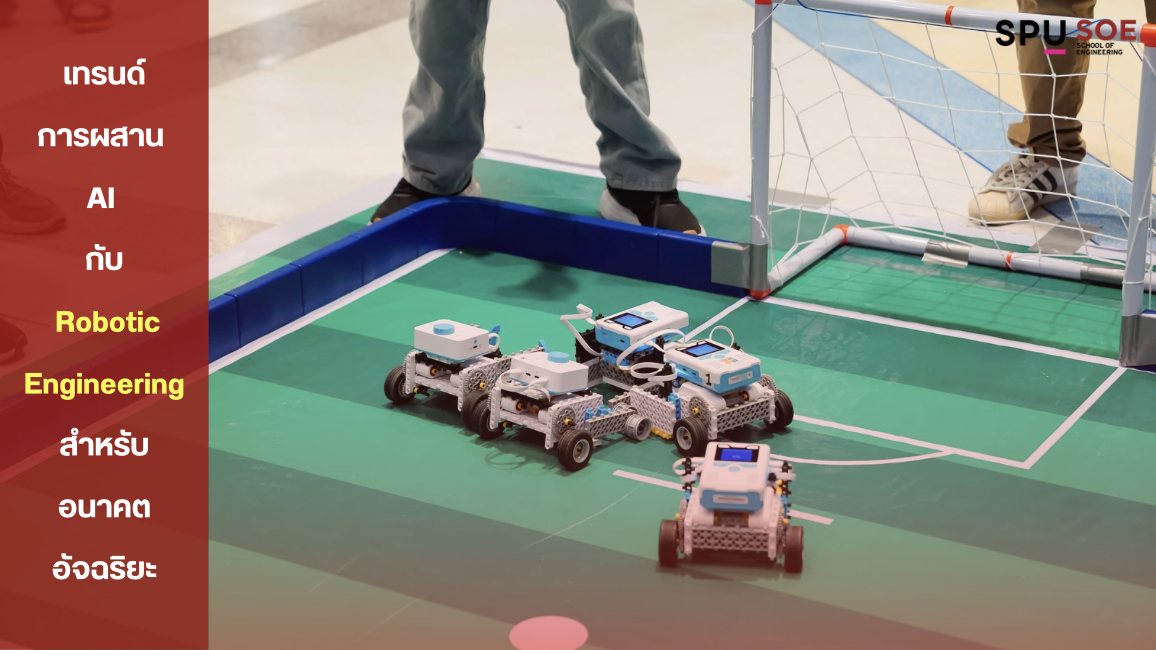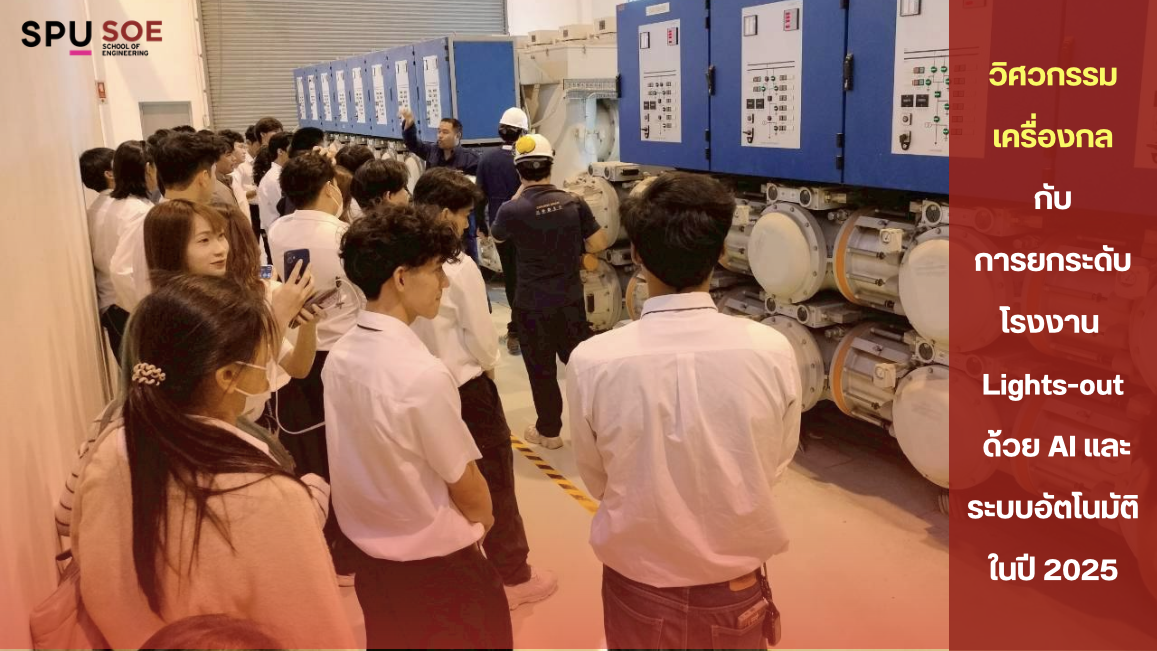Railway Engineering, the center of expertise for future engineering
Currently, mass transit electric trains are playing a role in changing both the physical aspects and the way of life of Thai society through policies and support from the government, such as the BTS Skytrain, the Metropolitan Rapid Transit (MRT), and many more electric train lines that are about to be built in the Bangkok and surrounding areas.
In addition to the public transportation systems in the cities mentioned above, there are also projects to construct double-track railways throughout the country, as well as projects to construct the Eastern High-Speed Railway connecting 3 airports, the Thai-Chinese High-Speed Railway, the Northeastern Line, the Northern High-Speed Railway project, Bangkok-Chiang Mai, and the Southern High-Speed Railway project, Bangkok-Hua Hin-Padang Besar, to support economic development and connect trade markets between countries in the Mekong River Basin because Thailand is considered the center of Indochina.
All of the plans for the development of the country’s mass transit infrastructure in the future are related to the roles and duties of engineers in many ways, including the creation of the field of management engineering and rail system management, which is currently very popular.
The Faculty of Engineering, Sripatum University, has qualified individuals such as Asst. Prof. Dr. Chavalit Maneesri, Head of the Railway Engineering Program and Director of the Continuing Engineering Education Center, Faculty of Engineering, Sripatum University, to be a key force in producing new generation engineers in the field of management engineering and railway management to enter the current hot market.
Asst. Prof. Dr. Chavalit Maneesri, Head of the Railway Engineering Program, explained the structure of the Management Engineer and Railway Management Program as a collection of basic engineering knowledge to be applied to perform various duties together.
Starting from the first process of the rail industry, starting from the first process, the construction of the rail system (Construction), which mainly relies on civil engineering and track structures (Civil and Track Works), whether it is surveying, tunnel construction, road construction, bridge construction, etc. The next is the matter of the rolling stock engineer, which mainly uses mechanical engineering skills, the car body, bogie, brake system, suspension, trailers and receivers, including the use of electrical engineering knowledge, both in terms of power engineering for the machine and communication systems for signals, including maintenance, which requires engineer skills in planning maintenance, managing spare parts for maintenance. In addition, it also requires knowledge of industrial engineering, management to use in planning train operations, managing various operations to be smooth according to the goals, and the last part that cannot be missed is the O&M (Operations and Maintenance) system, which is about personnel management, improving service, promoting facilities, namely, managing stations, drivers, and ticketing staff. Of course, if you study engineering, you will be able to understand the system project and the operation of this industry better than those who study in other fields.
And that is the overview of teaching in the field of Railway Engineering, Management Engineer and Railway Management, which is an integrated science, a multidisciplinary field that combines skills and knowledge from various engineering fields to apply to create specific knowledge for working in the railway system.
For those interested in railway engineering and other related fields, you can view information about the railway engineering curriculum at Sripatum University at https://www.spu.ac.th/fac/engineer/th/program/144/






